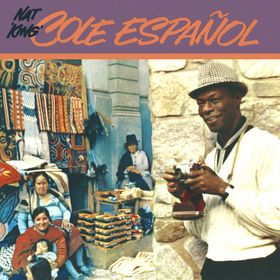
Once upon a time, I wrote a post about how words that end in -cula mean little. For example: molecule means little mass, and granule means little grain. Then! Suddenly! Today I thought of another.
Dracula! Dracula is Draco + cula. What is draco? Draco means dragon. Spoiler: Draco Malfoy = Dragon Bad Faith. Learn more Harry Potter names here.
The original vampiric association with Dracula was through Vlad III, known was Vlad Tepes, Tepes meaning Impaler. Curiously, Dracula was Vlad’s family name, the patronym. The internet doesn’t tell me much more than that, which is why this post has been in my drafts folder for seven months…
(EDIT: Commenter oetpay assisted with a link below, which explains that Vlad Dracul-ea means son of (-ea) Vlad Dracul, who was associated through dragons through the family heraldic crest. So it turns out that analyzing dracula and chocula as little dragons and little chocolate is not historically accurate. But we could say Count Chocula is son of Count Chocul.)
[and then suddenly…]
October 21, 2012
in candy,dragons,eponyms,food,insignificant linguistics mystery,latin,morphemes,Words & Origins
Does that title make you as happy as it makes me? Probably not, but let’s see if I can change that.

Linguistics Llama Knows What I’m Saying
Part 1: Ghoti is a satirical spelling of fish [fɪʃ]. It is often attributed to George Bernard Shaw, but he doesn’t take credit for it. Ghoti is used to mock spelling inconsistencies in English and advocate reform. (There’s a clever bunch who even say ghoti should be silent). I don’t deny it, English spelling is very irregular. It’s a Germanic language at heart, but with massive word-borrowing from French and Latin, and PTSD from the GVS (Great Vowel Shift). This is the phonetic thinking behind ghoti:
GH is [f] as in TOUGH
O is [ɪ] as in WOMEN
TI is [ʃ] as in NATION
Obviously, the ‘sh’ in nation needs a larger environment to have its unusual pronunciation, as in ghotion. Likewise, ‘gh’ in tough needs to be syllable-final, as in roughotion [rʌfɪʃən]. That works, I guess, except for that tricky vowel. That silly vowel that makes people say WOAH-man. [and then suddenly…]
January 24, 2012
in best post ever,career,english,Etymology,history of language,insignificant linguistics mystery,IPA,Words & Origins
Once upon a time, I learned that seeing -fer or -phor in a word means ‘to carry or bear.’ I love it a lot, I made a great comic about it, everybody’s happy. Yesterday I read Chapter 1 for my Syntax class, and it mentions the term anaphora. Examples of anaphors are himself, herself, itself, and themselves. Hmmm, said the brain. This term carries something, but what does ‘ana’ mean? At first I thought it was a simple negator like ‘a-‘ as in atypical, but no! [and then suddenly…]
October 20, 2011
in anagram,english,Etymology,greek,insignificant linguistics mystery,University of York,Words & Origins

The University of York Coat of Arms
Most likely, the title of this post means nothing to you. For me, it was signpost in a series of cute irresistible signposts that suggested I go to the University of York in the fall to get my masters in Linguistics. [and then suddenly…]
July 20, 2011
in best post ever,career,Etymology,history of language,insignificant linguistics mystery,latin,University of York,Words & Origins

There are so many words in the world, I can’t blame anyone for not knowing the original meaning of any specific word, even when its a simple compound made of two familiar words. We’re so busy using language as a communication tool that we rarely stop hammering to look at the thing itself. A funny old thing, the dashboard. [and then suddenly…]
May 28, 2011
in cars,english,Etymology,etymonline,history of language,horses,insignificant linguistics mystery,wikipedia,wordnik,Words & Origins
A few years ago, I took first year Latin at PSU. I didn’t continue Latin because I got a job, and it turns out I hate declining nouns and adjectives. It is three times as much work. The professor was great, seemingly normal, but with a great unexpected affection for Elvis (pronouced Elwees in Latin). I really liked learning the new vocab and connecting it to modern words I know in English, Spanish and French. I also loved conjugating the verbs and learning the four principle parts like in the verb ‘regere,’ to rule or reign: Rego, Regere, Rexi, Rectum.
[and then suddenly…]
May 15, 2011
in best post ever,career,etymonline,history of language,insignificant linguistics mystery,IPA,latin,morphemes,spanish,wordnik
When I have thought about and used this word, as in ‘painstakingly obvious’ or ‘she described the incident in painstaking detail,’ I break up the big morphemes as ‘pain and stakingly.’ Then, yesterday, I pressed random word on wordnik.com often enough that I got to the page on the word painstaker. The definition is “One who takes pains.” OF COURSE, said my brain, it is someone who takes pains to make sure every detail is in place. Pains taker, not pain staker.
April 29, 2011
in dictionaries,english,Etymology,FACT,insignificant linguistics mystery,wordnik,Words & Origins




